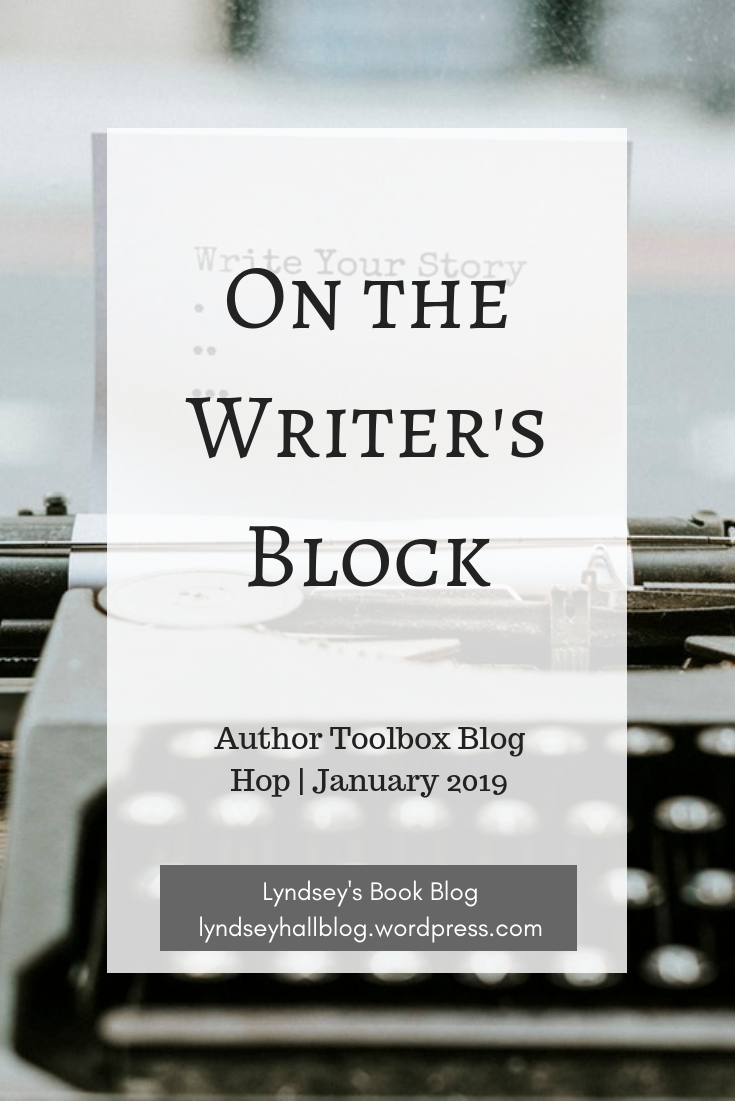Happy New Year! It’s been a few months since my last post, what with NaNoWriMo and the festive break, but I’m back with my first post of 2019. Today I want to talk about that age-old thing, writer’s block.

Whether you’ve been writing for years, or you’re new to the craft, you’ll almost certainly have heard of writer’s block. You’ve probably even suffered from it, to some extent. And if not, then you most likely will at some point in your writing career. (Sorry!)
Laini Taylor, author of the Daughter of Smoke and Bone series, and the Strange the Dreamer duology, just posted a great thread on Twitter about one dangerous misconception about writer’s block. Click below to read the full thread.
In the thread, Laini opens up about how challenging she finds the writing process, and how rarely the words just flow out of her without resistance. So, if you’re battling writer’s block or find writing really hard work, even though you love it, you’re not alone. Even the greats like Laini Taylor (I mean, have you read Strange the Dreamer? Perfection.) hit a wall with their writing at times.
Writer’s block can manifest in a number of ways: you might struggle to find the right words, or it might feel more like performance anxiety – the fear of not being good enough may stop you before you’ve even started. It can hit you at any time in your writing career, whether you’re sending your first draft off to beta readers – finger hovering over Send, paralysed with fear – or you’re publishing your twentieth novel and worry it won’t be as well received as your previous works.
The important thing to remember is that it will pass. You will write again, you’ll find the words, become inspired and have moments of flow. But only if you KEEP WRITING! Push through the blockage, persevere and write even when it’s slow and painstaking. Even if you cut half (or more) of what you wrote while blocked during editing, it’s a necessary process that will help you break through the blockage, and ultimately become a better writer.
We won’t always feel inspired, sometimes writing will feel like pulling teeth, but the key is to keep at it, keep working on your story. Writing, like any job,
is hard work, and whether it’s your career, your side hustle, your passion or your hobby it won’t always be easy and fun. You’ll stumble sometimes, hit a wall and struggle to climb over it, but the only way you’ll finish your novel, type those two little all-important words, and ultimately publish your book, is if you don’t give up.

Laini shared a book on her Instagram called Around the Writer’s Block: Using brain science to solve writer’s resistance, which discusses all the various obstacles writers may face that could cause us to struggle with our writing. It focuses on the scientific reasons for writer’s block, and habit-building to help us make it a thing of the past. It worked for Laini, maybe it will work for you?
One of the methods that lots of writers champion is free writing, opening your notebook and filling a page or two each day with whatever comes to mind. You can use a prompt if it helps you to get the pen moving, but there’s absolutely no pressure for the words you write to turn into a story, or ever be seen by another human being. You don’t even have to read it back yourself if you don’t want to!
Whatever you find helps you to break through the block, just remember you’re not alone, there are probably a thousand other writers going through the exact same thing at the same time. Why not reach out to the writing community online for some friendly encouragement? Twitter and Instagram are great places to start, just use the hashtag #amwriting and you’re sure to get a fair few responses from your fellow wordsmiths! And don’t forget to share your tips for what helps you when you’re blocked, we all need a little advice sometimes so add your voice to the conversation, you never know who you might help.
Lyndsey
x



Really good-sounding suggestions. I don’t get writer’s block (phew!) so can’t say if they work but it would be awful to not be able to write!
LikeLike
Nice post! I want to read that book. When I am struggling to write I try not to force it. Instead I think about it! I just kind of try to figure out why I am having trouble writing because often it means I am missing and important piece of a scene or character trait. I do believe it always passes though, if you have faith in that, the struggle seems to pass a little easier! Thanks for the post… and I loved Latino Taylor’s Strange the Dreamer!
LikeLiked by 1 person
I always found a good walk with my dogs in the woods helped me work through any sticky bits 😊 thanks Christi!
LikeLiked by 1 person
Weird autocorrect: Laini …
LikeLike
I forgot to mention in my last comment that I am noticing this hashtag if you need a little encouragement: #writingcommunity.
LikeLike
Great resource on the book, Lyndsey. Of course writer’s block is real. If some podcaster doesn’t believe it – oh well, they’re entitle to their opinion. I’d just agree to disagree and move on.
LikeLike
What a great pep talk! The more times I get writers’ block, the easier it is to deal with, because like you say, I know it will pass. Great post!
LikeLike
Free writing is definitely one of my favorite ways of resolving writer’s block. I often find that the issue is rooted in heaping pressure and expectations on myself, so writing without a purpose beyond “enjoy it” often helps, and helps build up some momentum.
Other times I may read an article on writing, or read over something I’ve already written for the sake of revision.
Sometimes I will step away, usually doing something that requires little mental energy and has a strong guarantee of success, i.e. going for a walk or run.
In many cases, for me, the idea is achieving some kind of success/progress under circumstances where there’s little question that “something” will be achieved.
I think a big part of it is recognizing that what works once may not work the next time, and it’s often a matter of “letting go” and allowing myself to be guided, rather than trying to overly control and “steer” the experience.
LikeLike
I tend to find wriyer’s Block is a form of resistance for me. It usually means something is off about what I’m writing and I just haven’t figured out what it is yet. It helps me to research craft books and to freewrite about what’s i think the problem might be. Also, I’ll often get unstuck by telling my husband about the problem. Trying to articulate the exact issue to him often leads to me resolving the issue on my own or through our discussion.
LikeLike